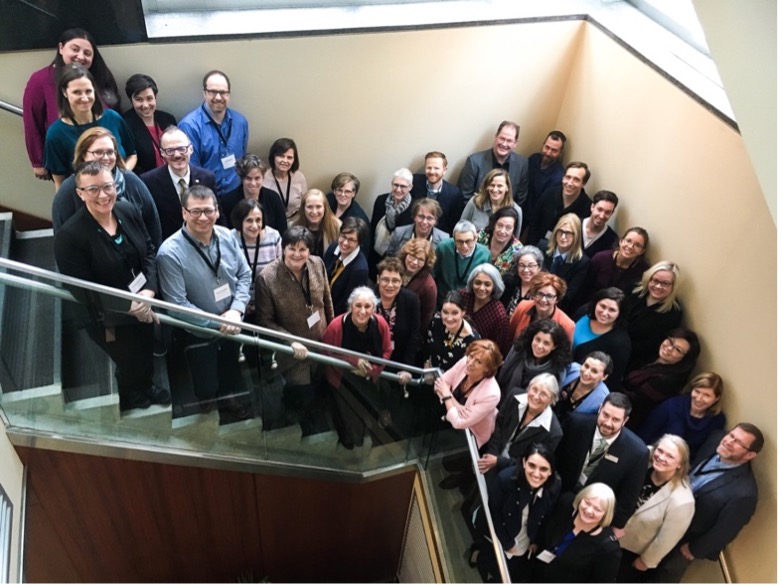About the International Elective Classifications
In 2015-2016, nine campuses in Ireland went through a yearlong process of administering the Carnegie Elective Classification for Community Engagement for the purpose of self-assessment and to provide feedback on ways in which the documentation framework (application) might need to be adapted to account for the national and cultural context. The Ireland pilot has informed this international Community Engagement Classification project.
In 2018, 16 Canadian and 9 Australian institutions joined together into two national cohorts to form national learning communities and embark on a 1.5+ year process of:
- Working through the US Classification Framework and Self Assessment;
- Learning from that process about their own campus capacity and commitment for community engagement;
- Identifying the ways the existing US framework would need to be adapted and augmented for their particular national contexts;
- Drafting a nationally specific new framework;
- Potentially requesting Foundation approval of these new frameworks as official Carnegie Classifications.
Australian Community Engagement Classification
In August 2018, participating Australian universities attended an initial convening in August to learn about the history, philosophy, and logic of the existing US Carnegie Classification. By mid-2020, the Australian pilot institutions completed and submitted the existing US classification application to reflect on and implement institution-wide measurements and evaluation methods of community engagement. The cohort then worked together as a learning community to identify needed adjustments to the existing classification, recommended solutions, and contributed to the development of an Australian specific version of the classification. The Australian Carnegie Classification will launch in February 2022.
“The opportunity to collectively forge an Australian community engagement classification through a world-leading framework is a game changer for higher education in Australia. Enhanced ability to benchmark, reward, incentivise and achieve scaled impact will enable and drive the critical mission of universities as institutions in service of society.”
— Verity Firth, Pro Vice-Chancellor for Social Justice and Inclusion, University Technology Sydney
Additional information about the Australian Pilot and the Australian Carnegie Classification can be found through Engagement Australia, the host organization of the Australian Carnegie Classification.
Australian Pilot Leading Universities
Participating Universities
- Australian Catholic University
- CQ University Australia
- Curtin University
- Flinders University
- La Trobe University
- Southern Cross University
- University of the Sunshine Coast
- Western Sydney University
Observer Universities
- Deakin University
- Federation University
- James Cook University
- Swinburne University of Technology
- The University of Sydney
- The University of Tasmania
- The University of Western Australia
Canadian Community Engagement Pilot
Beginning in 2018, an extensive pilot project was undertaken by 16 Canadian post-secondary institutions and the Carnegie Foundation for the Advancement of Teaching to explore the applicability of the Carnegie Community Engagement framework outside of the U.S. context and how the documentation framework (application) might be adapted to account for the Canadian national and cultural context. In 2021, the Canadian Pilot Cohort (CPC) committed to adopting the Carnegie Community Engagement Classification as the aspirational standard for post-secondary community engagement in Canada.
Recognition of the true history of Canada and reconciliation with First Nations, Metis, and Inuit Peoples has been a fundamental goal that has guided the work of the Canadian Pilot Cohort. This will continue as the Canadian Carnegie Classification moves to its next stages of development. The Governance, Framework Documentation, and Community of Practice activities of the Canadian Carnegie Classification will reflect this and underpin the collective responsibility to respect the United Nations Declaration of the Rights of Indigenous Peoples (UNDRIP) and the four principles for a new relationship between Indigenous Peoples and Canada set out by the Royal Commission on Aboriginal Peoples twenty-five years ago: recognition, respect, sharing and responsibility. These principles are foundational for the Principles and Calls to Action by the Truth and Reconciliation Commission and the Commission on Murdered and Missing Indigenous Women that followed. The Canadian Carnegie Classification will be a part of how Canadian post-secondary institutions are working to decolonize and reconcile in this context.

Representatives of the Canadian Carnegie Classification Pilot cohort at Simon Fraser University, February 2019
Additional information about the Canadian Pilot and the future Canadian Carnegie Classification can be found through Simon Fraser University, the presenting institutional partner for the pilot.
Participating Institutions:
- Assiniboine Community College
- Carleton University
- Kwantlen Polytechnic University
- McMaster University
- Mount Allison University
- Nova Scotia College of Art and Design
- Saskatchewan Indian Institute of Technologies
- Simon Fraser University
- University of Alberta
- University of British Columbia
- University of Calgary
- University of Ottawa
- Université du Québec
- University of Windsor
- York University
- Yukon University